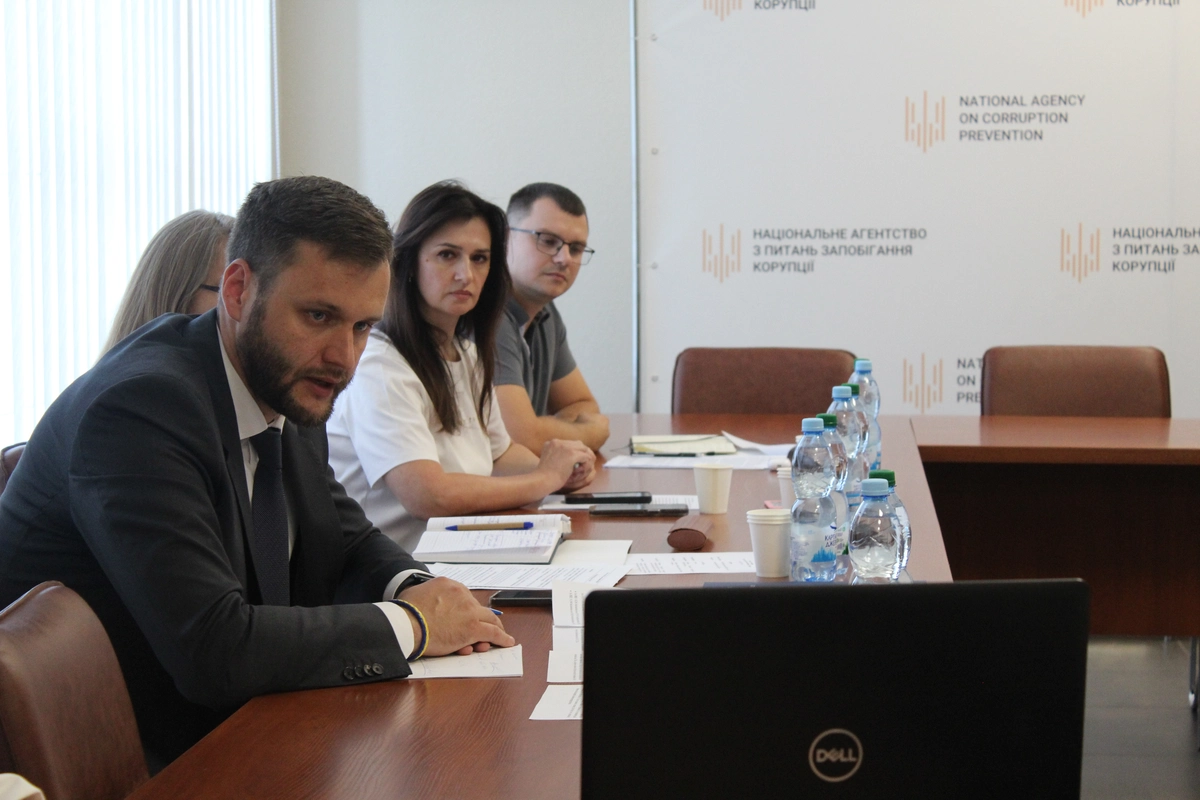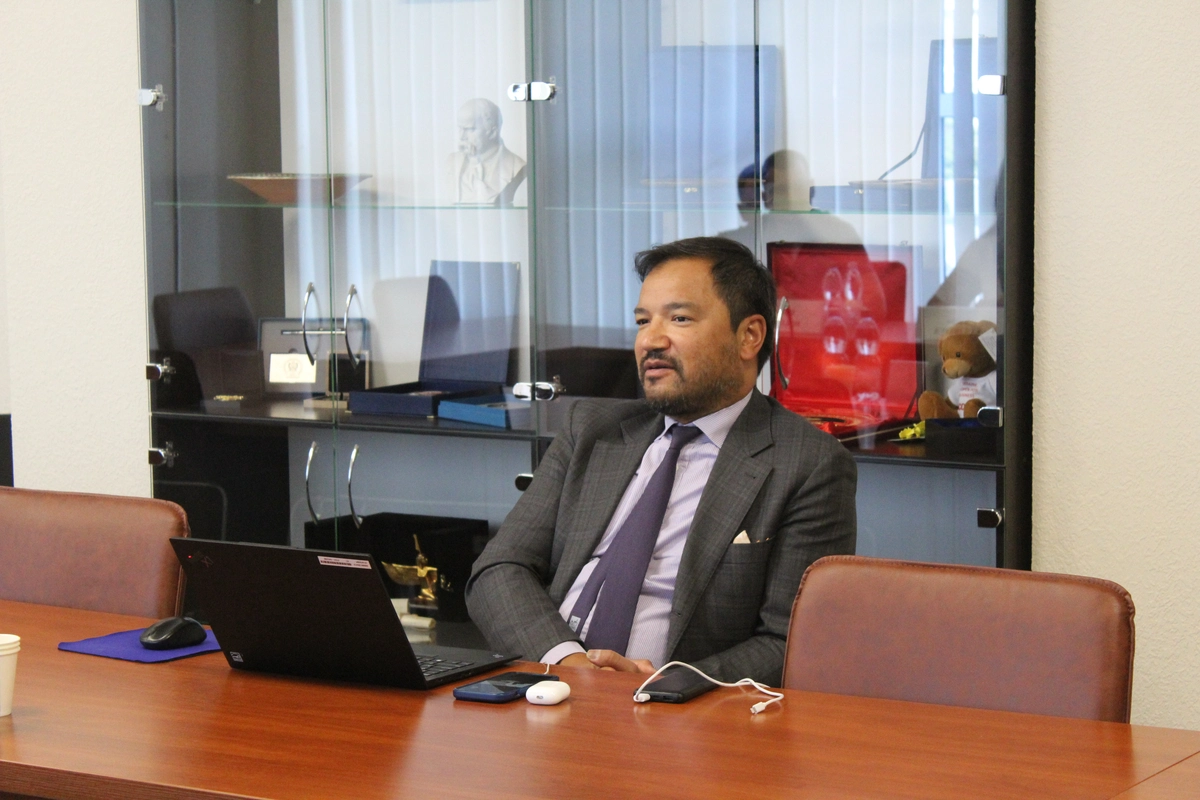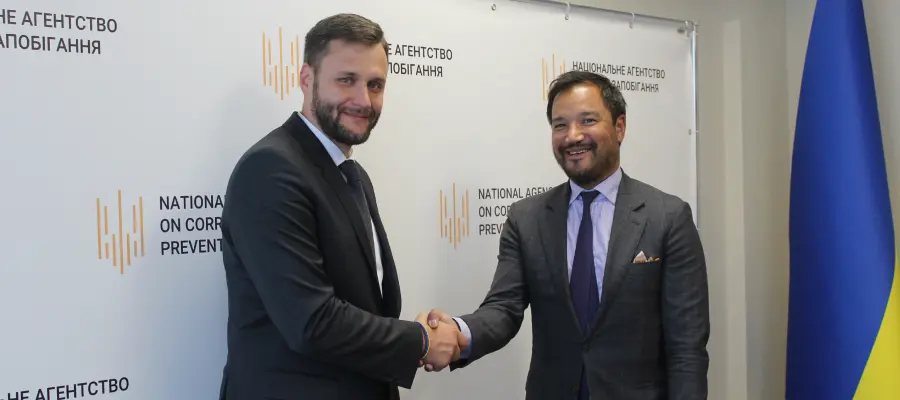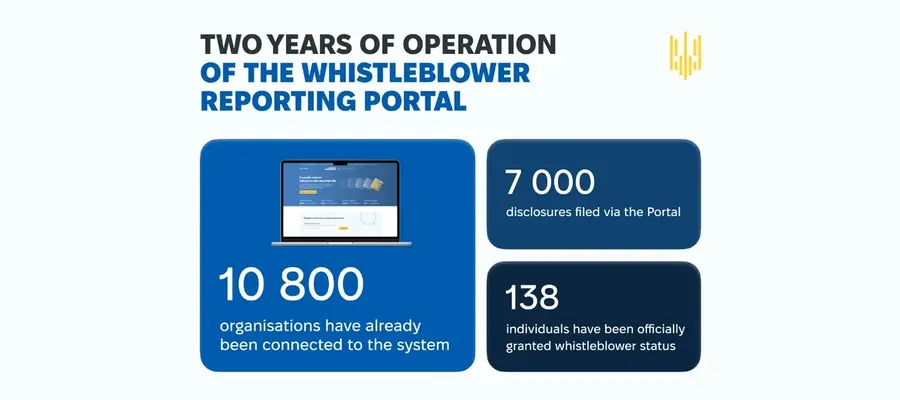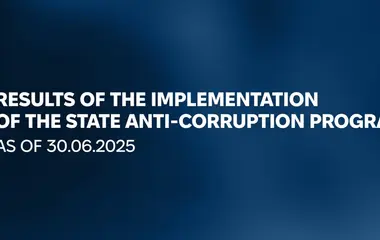Optimization of the process of submitting declarations for civil servants, the current state of conducting full declaration examinations, and ways to improve tools for detecting violations were discussed at a meeting between Viktor Pavlushchyk, Head of the National Agency on Corruption Prevention (NACP), and representatives of the International Monetary Fund (IMF).
The conversation with IMF Senior Economist Heiko Hesse and IMF Senior Advisor Jonathan Pampolina focused on a risk-based approach to declaration examinations, which allows for a more efficient allocation of NACP resources and targeting the riskiest groups of declarants.
They also discussed the issue of information exchange with government agencies of the UN Convention against Corruption (UNCAC) member states. This aspect of cooperation is crucial for identifying the assets of public officials abroad and preventing possible attempts to hide them.
The head of the National Agency told IMF representatives about the progress made by the NACP in the process of examining declarations. According to him, in the first half of 2024, 28% of declarations submitted for 2021, 26% for 2022, and 24% for 2023 were automatically examined.
Since the beginning of 2024, the NACP has launched 711 full risk-based examinations of declarations. Based on the results of 378 completed examinations, inaccurate information was found in almost every second declaration for a total amount of UAH 1.8 billion, and signs of illicit enrichment of more than UAH 146 million were found based on the results of full examinations of 7 declarations and unjustified assets of 8 declarants for more than UAH 28 million.
In addition, in 2024, the National Agency launched 142 lifestyle monitoring of public officials. At the beginning of September, 26 materials and substantiated conclusions were sent to law enforcement agencies. In particular, 10 materials with signs of unjustified assets totaling almost UAH 54 million were sent to the Specialized Anti-Corruption Prosecutor's Office, of which six lawsuits were filed with the High Anti-Corruption Court to recognize the assets as unjustified. Based on the detected signs of illicit enrichment, 16 substantiated conclusions totaling almost UAH 480 million were sent to law enforcement agencies (five subjects were served with notices of suspicion of illicit enrichment).
“NACP is the only executive body responsible for formulating the state anti-corruption policy. In addition, only NACP has the necessary analytical resources and a powerful database of information needed to develop the anti-corruption policy agenda. Undoubtedly, strengthening cooperation between the IMF and the NACP will contribute to the successful implementation of the anti-corruption commitments set out in the Memorandum of Economic and Financial Policies, as well as a number of other requirements set by the IMF. We are grateful to the IMF for its continued support of our efforts to increase transparency and accountability of the public sector,” notes Pavlushchyk.
Also, the NACP Head announced that on October 11, 2024, new regulations of the Law of Ukraine “On Prevention of Corruption” will come into force regarding partially automated filling of the draft declaration. Through the joint documents between the NACP and the authorities holding databases, registers, and reference systems, the NACP will be able to help the declarant fill in a draft declaration of almost 74% of the information, provided that the data is available in electronic form. This can simplify the declaration process, and avoid mistakes and typos in a declaration.